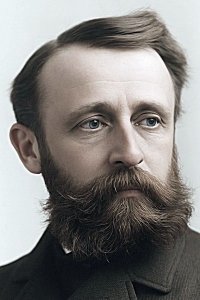Introduction

Born: January 8, 1846, Jersey City, New Jersey.
Died: December 20, 1916, Easton, Pennsylvania.
Buried: Saint Thomas’ Episcopal Church Cemetery, Whitemarsh, Pennsylvania.

Born: January 8, 1846, Jersey City, New Jersey.
Died: December 20, 1916, Easton, Pennsylvania.
Buried: Saint Thomas’ Episcopal Church Cemetery, Whitemarsh, Pennsylvania.
Gilchrist’s family moved to Philadelphia, Pennsylvania, when he was nine years old. He attended school there until the outbreak of the American civil war, when his father’s business failed and William had to seek other work.
Having a good voice, he sang in choirs and choruses, first as a soprano, and later a smooth, flexible baritone. He began singing some of the principal parts in the Handel and Haydn Society, where his first real musical life began.
At age 19, Gilchrist began studying organ and voice with Professor H. A. Clarke, gradually concentrating on theory.
At age 25, he spent a year in Cincinnati, Ohio, as organist and teacher, returning to Philadelphia to take post of choir master at St. Clement’s Protestant Episcopal Church. He later became conductor of the Mendelssohn Club, the Tuesday Club of Wilmington, and the Philadelphia Symphony Society.
Gilchrist was best known as a composer. His first success was in 1878, winning two prizes from the Abt Society of Philadelphia for best choruses for male voices. In 1881, he won three similar prizes from the Mendelssohn Glee Club of New York.
In 1884, he took a $1,000 prize from the Cincinnati Festival Association; the judges included Saint-Saëns, Reinecke, and Theodore Thomas. This work was an elaborate setting of the Forty-Sixth Psalm, and was enthusiastically received. Gilchrist afterwards modified it and brought it out at the Philadelphia Festival in 1885.
Gilchrist also served as editor for the 1895 Presbyterian hymnal, as musical editor of The Magnificat in 1910, and wrote symphonies, chamber and choral music.